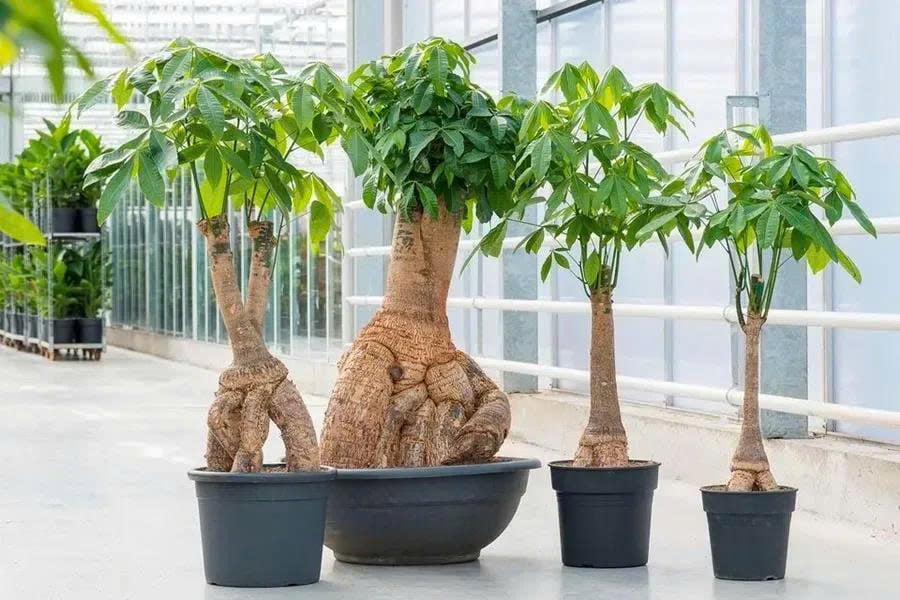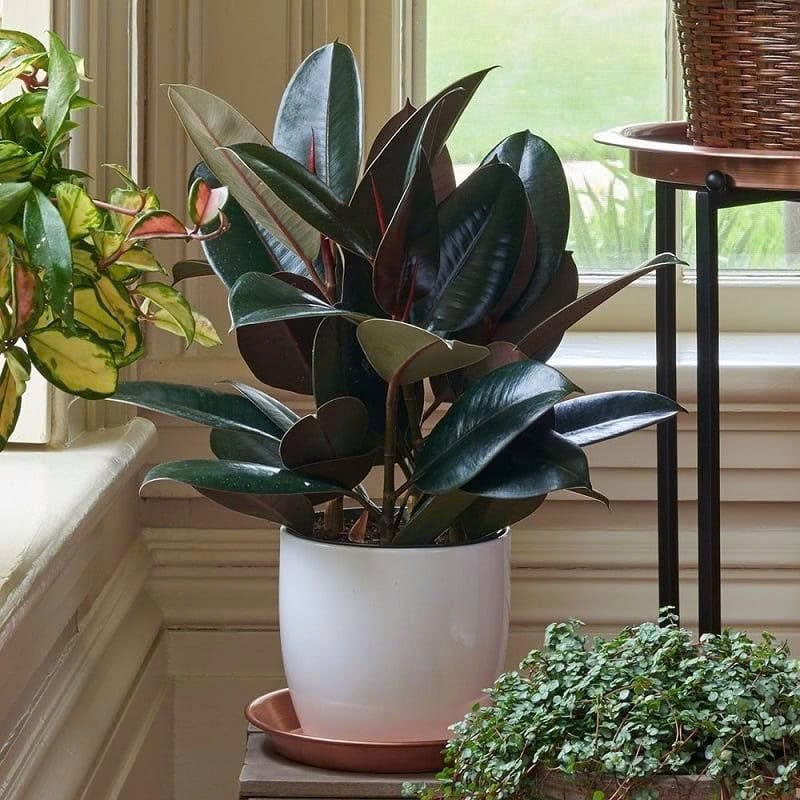The Feng Shui of Houseplants: Greenery for Good Fortune, Prosperity, and Peace
In ancient folklore, houseplants are believed to bring more than just decorative appeal to a home; they are thought to possess profound Feng Shui significance. Heeding the advice of our ancestors, “Plant these four lucky houseplants and attract wealth, prosperity, and peace into your home.” These plants are not only easy to care for but are also believed to bring good fortune according to traditional beliefs.
1. Money Tree – A Symbol of Wealth and Prosperity
The Money Tree, or Pachira aquatica, is aptly named for its association with financial abundance and good luck. Its distinctive feature is the braided trunk, symbolizing the five elements of Feng Shui: Metal, Wood, Water, Fire, and Earth, thus bringing balance and harmony to your living space.
Beyond its elegant appearance, the Money Tree is easy to cultivate and thrives in low-light conditions. Its neat shape and lush green leaves make it an ideal addition to living rooms, offices, or entryways, inviting prosperity into your home. According to Feng Shui, placing the Money Tree in the southeast corner of your home, known as the “wealth corner,” can open the door to monetary blessings and abundance.
Our ancestors believed that the Money Tree not only attracted wealth but also helped homeowners preserve their riches, preventing unnecessary financial losses.

2. Fiddle Leaf Fig – Modern Elegance, Symbol of Abundance
The Fiddle Leaf Fig (Ficus lyrata) stands out with its large, violin-shaped leaves, symbolizing opulence and fullness. The prominent veins and deep green color of its leaves evoke a sense of vitality and robustness. This plant is a favorite in modern interior design for its sophisticated appearance and excellent air-purifying abilities.
In ancient beliefs, the Fiddle Leaf Fig represents not just aesthetic enhancement but also abundance, fullness, and stability. Notably, this plant grows vertically, saving space, and is perfect for placement in room corners or against walls.
However, it’s important to note that the Fiddle Leaf Fig dislikes frequent relocation and may experience shock and leaf drop if moved around too often. Provide it with a permanent spot with moderate sunlight, and it will thrive as a vibrant focal point in your home.
3. Podocarpus – Symbol of Longevity and Protection
The Podocarpus (Podocarpus macrophyllus), also known as the La Hán Pine, exudes an ancient, dignified beauty often associated with noble households of the past. Its curved shape, small, sturdy leaves, and deep green color evoke a sense of tranquility and majesty. According to ancient beliefs, this plant symbolizes longevity, wisdom, and stability.
Feng Shui practitioners believe that the Podocarpus has the power to protect homes from negative energies, creating a peaceful and serene living environment. This plant is also considered a generational treasure, increasing in value over time, both monetarily and sentimentally.
Given its slow growth rate and preference for natural light, the Podocarpus is well-suited for balconies or areas near large windows. It requires minimal watering and periodic care to ensure its long-term survival.
4. Rubber Tree – A Shield of Peace, Symbol of Protection

The Rubber Tree (Ficus elastica) boasts a robust appearance with thick, deep green leaves that sometimes display a reddish-purple hue at the tips. This plant is regarded as a symbol of longevity, protection, and peace. In ancient times, the Rubber Tree was often planted at the entrance of villages as a guardian deity, and bringing this tree into your home is believed to invite a similar protective energy.
The Rubber Tree is prized for its resilience, ease of care, and adaptability to low light and water conditions, making it ideal for today’s busy homeowners seeking to incorporate greenery into their living spaces.
Additionally, the Rubber Tree tolerates pruning well, allowing you to shape it to your liking. Place it in a corner of your living room, near bookshelves, or by the entrance to instill a sense of stability and reassurance for your family.
There’s no need for complexity; these common houseplants hold special Feng Shui significance. Our ancestors believed that when choosing houseplants, it’s not just about aesthetics but also about creating a harmonious balance of Yin and Yang and attracting positive energy. Planting these houseplants is like sowing the seeds of good fortune – even if wealth doesn’t come instantly, they will contribute to a more stable and peaceful life.
The Golden Spot to Plant Tiger Tongue and Prosper: Where is it?
The Snake Plant, also known as the Mother-in-Law’s Tongue, is not just an easy-to-care-for houseplant, but also a powerful symbol of prosperity and good fortune in feng shui. This unique plant is believed to possess the ability to attract wealth and ward off negative energy, earning its reputation as a “lucky charm” in many cultures. With its striking appearance and purported metaphysical properties, the Snake Plant is a popular choice for those seeking to bring positive vibes and financial abundance into their homes or offices.





































